About IGLYO Grants
Launched in 2023 as a continuation of our mentorship project (2021-2022), our IGLYO Grants Programme aims to increase IGLYO’s impact by supporting our Members’ activities on the ground, as well as their work directly addressing the needs of local communities.
Every year, we provide €10k grants to three EU-based Members based on a call for applications to support grassroots and local projects on topics that are crucial for LGBTQI young people. But financial assistance is not all, we also provide expertise and support the Members all along the implementation of their projects.
The Grants Programme focuses on supporting organisations which are new, volunteer-based, and do not have easy access to funding.
Discover the selected projects in 2025, 2024 and 2023.

Funded by
.webp)
This grant scheme is open only to IGLYO’s Member Organisations registered in European Union Member States and is funded by the CERV Programme 2021-2027 of the European Union.
Selected Projects 2025
As part of our IGLYO Grants Programme 2025, we awarded five grants of €10,000 each to five of our Member Organisations based in EU Member States for the implementation of projects on three streams: Anti-Racism (for projects including and led by BIPOC); Policy, Advocacy and Research; and LGBTQI Inclusion in Sports. On top of financial assistance, IGLYO also provided technical support by working closely with the selected organisations in the implementation of their projects.
.png)
The five projects selected as part of our IGLYO Grants Programme 2025 were:
- REST (Resilience, Empowerment, Solidarity, Transformation) by Queerstion Media, Sweden
- TRANSforming the Narrative: Countering Anti-Gender Rhetoric in Estonia by Estonian Trans Alliance, Estonia
- Social Transition and Youth: Our realities by kolekTIRV, Croatia
- Access & Asylum: A Toolkit for LGBTIQ+ Protection in the Czech Republic by Afghanistan LGBTIQ+ Organisation, Czechia
- Queer Heroes Outdoors by Pink Summits, Germany
Read on below to learn more about each of the selected projects' stories!
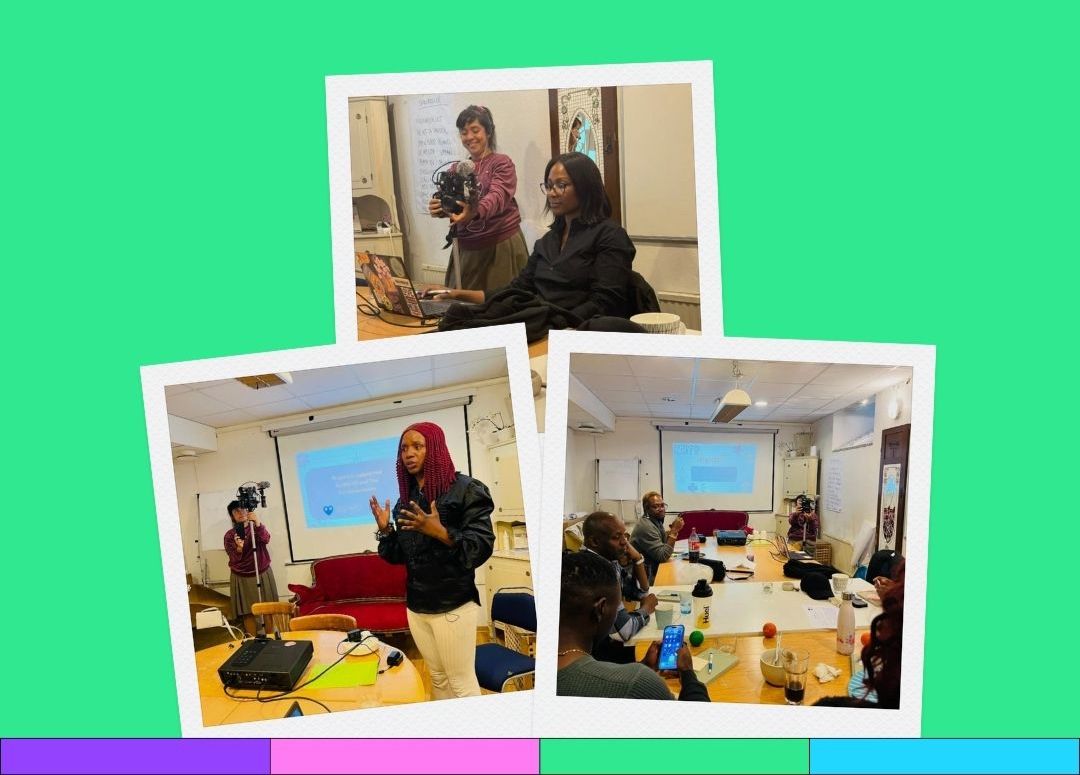
REST(Resilience, Empowerment, Sustainability and Transformation) by Queerstion Media, Sweden
Queerstion’s IGLYO Grants project titled “REST(Resilience, Empowerment, Sustainability and Transformation)” strengthened the skills and resilience of BIPOC LGBTQI+ refugees in Sweden. Through this project, they created dedicated spaces for anti-racism empowerment, collective healing, and intersectional advocacy.
Queerstion’s aim was to equip activists with practical tools to sustain their wellbeing and activism, while building stronger alliances across movements. The project included four core activities:
- They hosted a workshop on anti-racism, trauma, and minority stress. Participants shared personal experiences of discrimination and learned strategies to navigate systemic oppression.
- They conducted training for staff and volunteers on trauma, burnout, and sustainable wellbeing, strengthening our internal capacity to support vulnerable communities.
- They hosted the webinar “Threading Our Collective Liberation” in partnership with the European Network Against Racism (ENAR), which brought together trans refugee activists and allies to discuss lived experiences, solidarity strategies, and cross-movement challenges.
- They also organised a wellbeing excursion for BIPOC refugees, centring resilience, transformative healing, and collective care.
The impact of these activities was significant, with participants reporting increased confidence in using personal stories for advocacy, stronger bonds of solidarity, and practical tools for self-care.
Partnerships with local and regional organisations were strengthened, laying the foundation for continued collaboration on refugee rights, youth, trans, and racial justice. The depth of engagement was transformative, with participants continuing to support one another beyond the events.
Overall, the project achieved its aim of empowering BIPOC LGBTQI+ refugees to organise sustainably and advocate for their rights. It also reinforced Queerstion’s role as a connector across movements, building bridges of solidarity and care.
“This project gave me strength and confidence to lead, connect, and grow. I thank IGLYO for supporting this project, and I hope there will be more collaborations and support in the future,” said Lissa Janet (She/her), Queerstion’s Project Coordinator
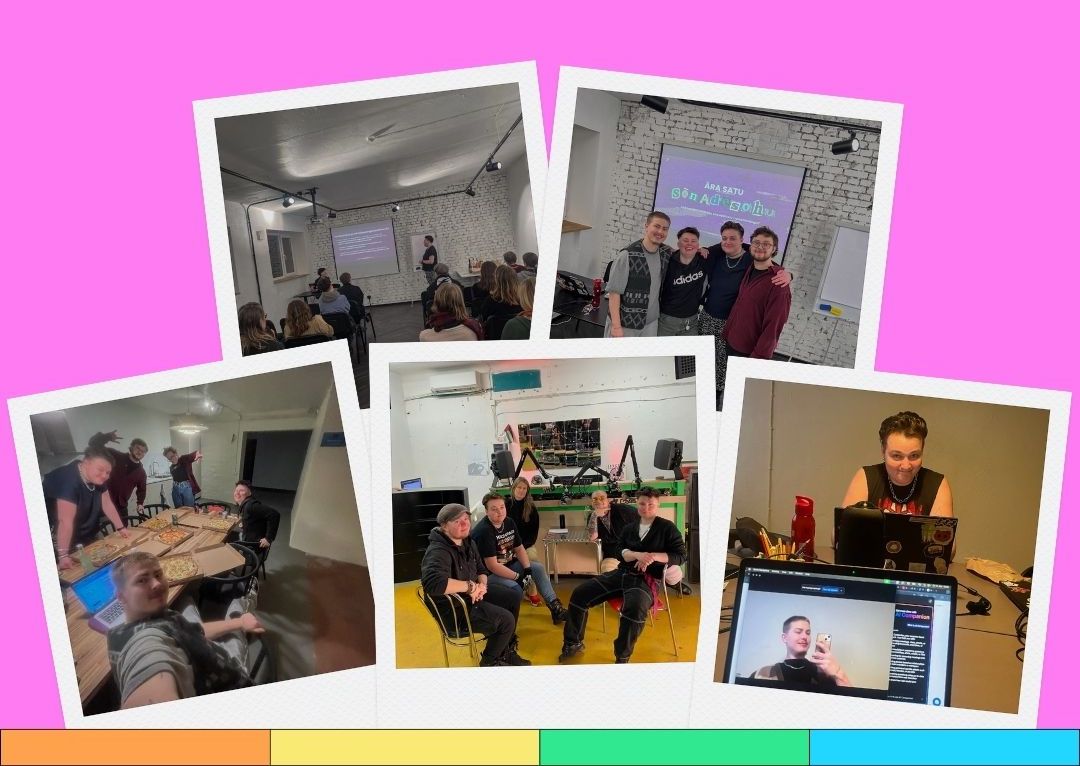
TRANSforming the Narrative: Countering Anti-Gender Rhetoric in Estonia by The Estonian Trans Alliance
The Estonian Trans Alliance (ETA)’s project TRANSforming the Narrative: Countering Anti-Gender Rhetoric in Estonia combatted anti-gender narratives in Estonia by educating the trans community and allies through social media content in Estonian.
Their project included:
- A report on the spread of anti-gender narratives in Estonian mainstream media
- A policy brief of suggestions for opposing those narratives
- A social media awareness campaign to educate trans people and allies on anti-gender rhetoric
- An info sharing event where they presented the findings of the report and shared strategies for countering these narratives in media
- A podcast episode focused on talking about anti-gender narratives and the results of their project.
This project also made it possible for them to hire a trans social media coordinator, whose contributions to this project and to their social media overall have largely increased their visibility and interactions with their online audience.
While their research and media monitoring revealed that anti-gender rhetoric is actually minimal in mainstream Estonian media channels, mainly spread by specific authors, a majority of the articles use lies, misinformation or demagogy to spread incorrect information about trans people, feminism and gender research.
For this reason, ETA found it critical to introduce the harmful ideas and methods that these people use to our audience, to educate them about what to look out for in Estonian and international media.
"This was the first project I contributed to in a major capacity in ETÜ. It taught me a lot that I can take into account in future work. I'm excited to continue working with volunteers in our community to create something bigger than ourselves and make trans people a part of public life" said Karu (They/them), ETA’s Community Coordinator and Volunteer Manager
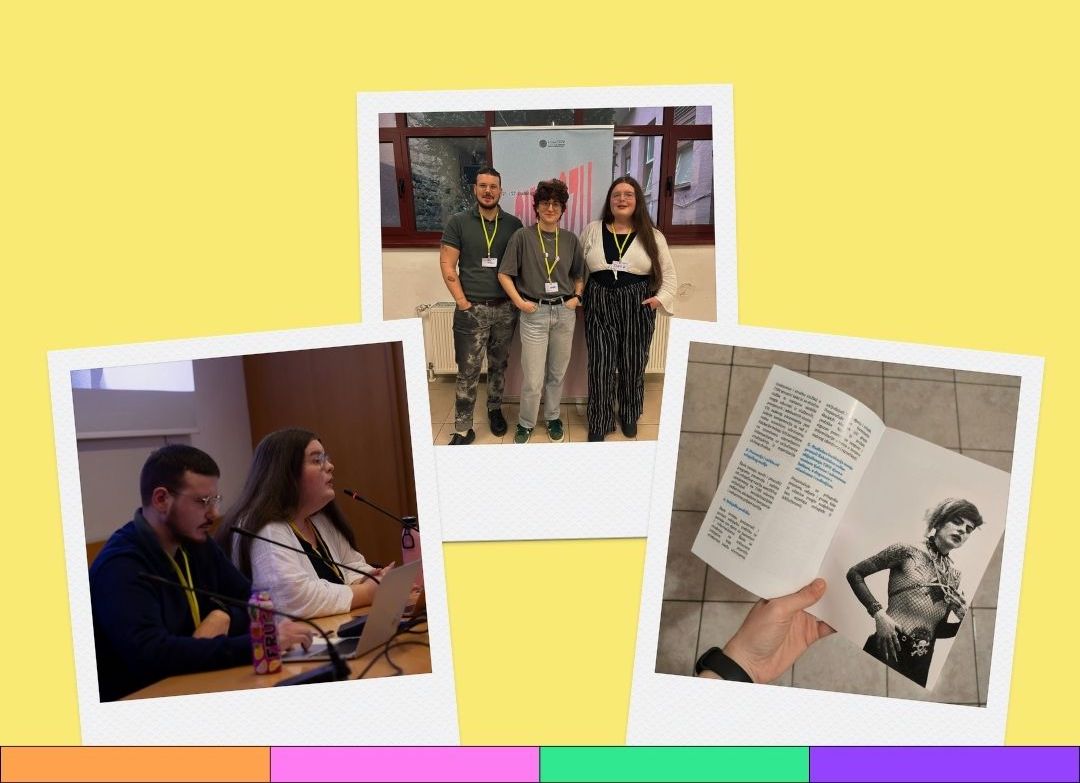
Social Transition and Youth: Our realities by kolekTIRV, Croatia
With the support of the IGLYO Grants Programme, kolekTIRV was able to take a meaningful next step in their long-standing work with families of trans, intersex and gender-diverse young people. For many years, these families have been turning to them when navigating school systems, healthcare services and daily life with very limited institutional support. This project gave them the space to take what they had been hearing informally for so long and transform it into a structured process that could meaningfully contribute to national advocacy.
Through carefully designed qualitative interviews with eleven families, kolekTIRV collected and analysed experiences that are rarely acknowledged in institutional settings. Parents spoke about trying to protect their children in environments that are often unprepared or misinformed; young people shared moments of affirmation, but also the heavy toll of misunderstanding and bureaucratic barriers. These insights were brought together into an accessible publication that centres the real-life experiences of TIGD youth and the people who support them.
The recommendations from this project were presented at the National Symposium on Trans Health in Zagreb, where more than 100 psychologists, social workers, teachers, physicians, medical students and community members engaged with the findings. The response was deeply encouraging: professionals expressed strong interest, requested additional copies, and shared that the publication helped them better understand what TIGD young people face in everyday institutional contexts. The digital version was shared with all participants and continues to support conversations and learning within their teams.
For kolekTIRV, this project marked an important shift. By systematising years of community knowledge into a clear and practical resource, they created a foundation for long-term advocacy with ministries, youth services and schools. The publication now serves as a bridge between families’ lived realities and the institutions responsible for their wellbeing, and as a tool for building safer, more supportive environments for TIGD youth across Croatia.
Psychologist, psychotherapist and researcher Mateo Popov (he/him) said: “Being part of this project was deeply inspiring. Families shared very personal and sometimes painful stories, driven by the hope that their experiences would help future generations. We are grateful for the trust they placed in us and for the opportunity to amplify their voices to the institutions that need to hear them. This project allowed us, for the first time, to systematically document the experiences of families with transgender and gender-diverse children in Croatia. Their stories clearly reveal where systems fall short, but also where meaningful improvements are possible. As professionals and as a community, it is our responsibility to turn these insights into concrete measures that will improve the lives of children and young people.”
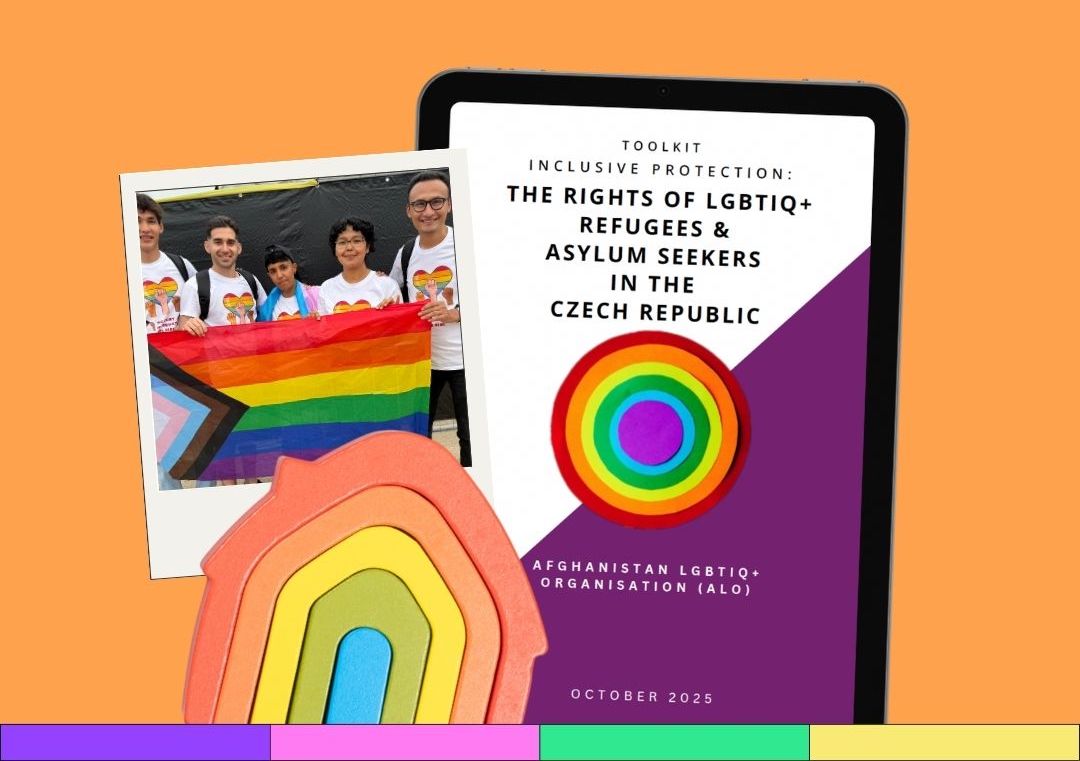
Access & Asylum: A Toolkit for LGBTIQ+ Protection in the Czech Republic by Afghanistan LGBTIQ+ Organisation, Czechia
The Afghanistan LGBTIQ+ Organisation (ALO) used their IGLYO Grant to address a significant gap in rights-based information for LGBTQI asylum seekers in the Czech Republic, as well as a lack of guidance for authorities and service providers on delivering inclusive and non-discriminatory support.
Through a participatory and community-centred process, ALO produced Inclusive Protection: Toolkit on the Rights of LGBTIQ+ Refugees and Asylum Seekers in the Czech Republic, a bilingual toolkit (English and Czech) that provides clear, practical guidance for LGBTQI refugees at every stage of the asylum process and offers actionable recommendations for institutions responsible for their protection and integration.
In the frame of their project, they notably engaged in extensive community consultations, one-on-one interviews with LGBTQI refugees and asylum seekers, and collaboration with lawyers and human rights experts to ensure legal accuracy. Two validation sessions were organised to review the draft toolkit and integrate feedback directly from community members. The final toolkit was launched on 30 October 2025 during a public webinar and subsequently disseminated to more than 200 organisations, including NGOs, legal service providers, shelters, and relevant state institutions.
The project has made a significant impact: LGBTQI refugees reported that the toolkit provides them, for the first time, with accessible and reliable information about their rights, how to navigate the asylum process, and how to address discrimination, racism, or SOGIESC-based harm. Some of the stakeholders and service providers expressed strong interest in the toolkit and requested additional copies, follow-up training, and guidance on implementing the recommendations in their procedures.
“This toolkit was shaped by the voices of LGBTIQ+ refugees themselves. For many participants, it was the first time they felt their experiences were truly heard and turned into something that can change systems. Seeing authorities request the toolkit and ask for training gives me hope that real inclusion is possible” said Artemis Akbary (He/She/They), ALO’s Executive Director.

Queer Heroes Outdoors by Pink Summits, Germany
Our Member Pink Summits (Germany) used their IGLYO Grant 2025 to develop the initial stage of "Queer Heroes Outdoors", a non-profit campaign promoting greater visibility of queer people in outdoor sports through storytelling and fighting against prejudices about LGBTIQ+ communities.
Pink Summits conducted interviews to collect stories of interesting queer outdoor athletes: those who cycle across Europe, compete in the Olympic Games, sail across oceans, climb the world's highest peaks and descend by paraglider or ski, undertake months-long hikes, start their own queer group, or even organise a queer rock climbing festival!
Pink Summits published these stories on the brand new website queerheroes.org they developed with their grant, and they will run a social media campaign using #QueerHeroesOutdoors.
The “heroes” featured on the website are also invited to join Pink Summits’ community events as speakers. “Some of the heroes do not have a personal website and much social media exposure. The campaign helps them with sharing their story and bringing opportunities for their upcoming projects and getting connected with others” said Dastan Kasmamytov, Pink Summits’ Co-Director.
If you’re a queer person active in any outdoor sport — at any level — you’re invited to share your story, become part of the growing Queer Heroes Outdoors community, and help inspire the next generation of queer adventurers. Just drop a line to dastan@pinksummits.org!
Selected Projects 2024
In 2024, we awarded three grants of €10,000 each to three of our Member Organisations based in EU Member States for the implementation of projects on three streams: LGBTQI Inclusive Education; Countering the Anti-Gender Movement (for trans- or intersex-led organisations); and Improving Accessibility. On top of financial assistance, IGLYO will also be providing technical support by working closely with the selected organisations in the implementation of their projects.

Upon a call for proposals, we are now excited to announce the three projects selected as part of our IGLYO Grants Programme 2024:
- Rainbow Schools by rede ex aequo, Portugal
- Countering Anti-gender Rhetoric with Trans Comics by Transfeminiinit, Finland
- Accessibility & Allyship: Disability Justice by Trans*Parent and Queer & Trans Youth CZ, Czech Republic
Read on below to learn more about each of the selected projects' stories!
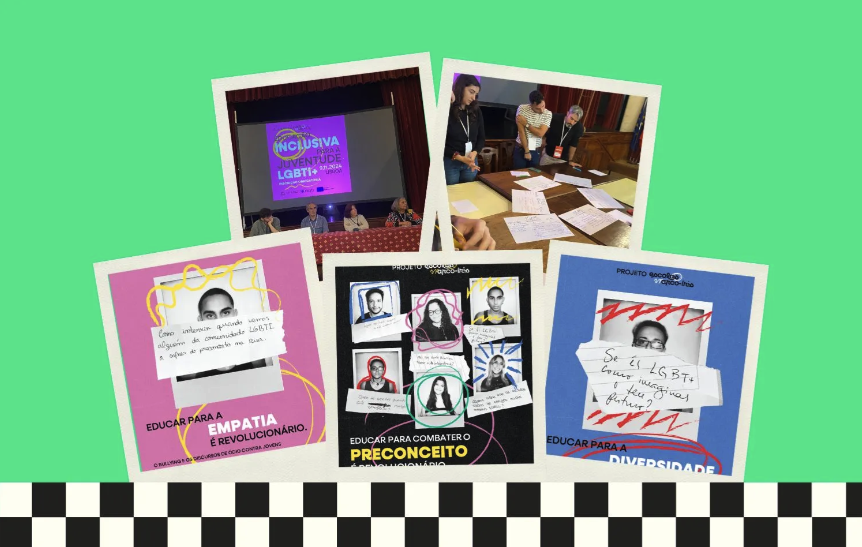
Rainbow Schools by rede ex aequo, Portugal
Our Member rede ex aequo used their IGLYO Grant to contribute to more inclusive education systems, and work towards creating a safe and inclusive school environment that specifically protects LGBTI youth in Portugal.
To achieve this aim they engaged with school staff, including teachers, school psychologists and administrations, through training and a specialised conference. They also sought to reach the general public through a campaign, to supplement their work to foster a more inclusive environment in schools, by increasing awareness within the general public.
The project activities included:
- Training for school staff: This training for school staff focused on raising awareness about SOGIESC issues and discrimination, as well as supporting teachers, administrations, psychologists and school support staff to react to LGBTI-phobic bullying and discrimination, to adequately accommodate trans students and to learn the legal provisions surrounding these topics in the education system.
- A conference on inclusive education and supporting LGBTI youth: Based on the work done in the training sessions and in the schools that they had developed partnerships with, rede ex aequo held a full-day conference developed for school staff members from all schools and to young people who are studying to become teachers and school psychologists. The conference had 14 people attending the workshops in person, and 60 participants overall (online and in-person).
- An awareness-raising campaign: This part of the project relied on visual materials to raise awareness of LGBTI youth and the discrimination they suffer in school, perpetrated by peers, school staff and administrations. It focused on dismantling anti-gender narratives, as well as humanising LGBTI youth in the eyes of the general public. A large part of this work was achieved through videos created for YouTube, Tik Tok and Instagram Reels to reach a wider audience with clear, accessible and engaging content. They also created a set of visuals which could be used in both static and dynamic public advertising displays across the country. By partnering with 7 schools, 18 civil society organisations and 7 municipalities, they covered a total of 13 Portuguese districts (out of 18).
With this project and IGLYO’s support, rede ex aequo reached schools and universities that they had not yet reached, in more conservative regions of Portugal. This project served as a means to create partnerships with more entities and disseminate the work to a broader audience. The school staff they trained will undoubtedly have a positive impact on all youth they encounter for years to come.

Countering Anti-gender Rhetoric with Trans Comics by Transfeminiinit, Finland
Our Member Transfeminiinit based in Finland used their IGLYO Grants to create comics with the aim of countering the anti-gender movement through art.
The main aim of the project was to bring factual and relevant information about the anti-gender movement to young people by using comics as an artistic medium. They commissioned the comics from two local trans comic artists, Ellu Hiltunen (@ellumir_) and Uolevi Äikäs (@surkeart) to share knowledge about the anti-gender movement from trans and intersex perspectives, debunk myths spread by anti-gender rhetoric, and give visibility to trans artists.
The comics were printed as posters, and distributed to relevant youth centres and other organisations’ offices throughout Finland. Posters are also available at Transfeminiinit’s office for anyone interested to collect.
The anti-gender movement is complex and their rhetoric is difficult to distinguish from the truth, especially for young people in Finland. Transfeminiinit set out to change that and bring knowledge on this topic in an easily accessible way.
The project was designed with young LGBTQI people in mind. The anti-gender movement thrives in a cloud of misinformation. It is well-funded and has mobilised supporters around the world through emotive yet false narratives.
It is important for our community to be united on this issue and for us to understand each other and the bigotry different parts of our community face. These comics educate young people about the false narratives and how to respond to them, in the hopes of ensuring that young people are informed on the topic and understand the complexities.
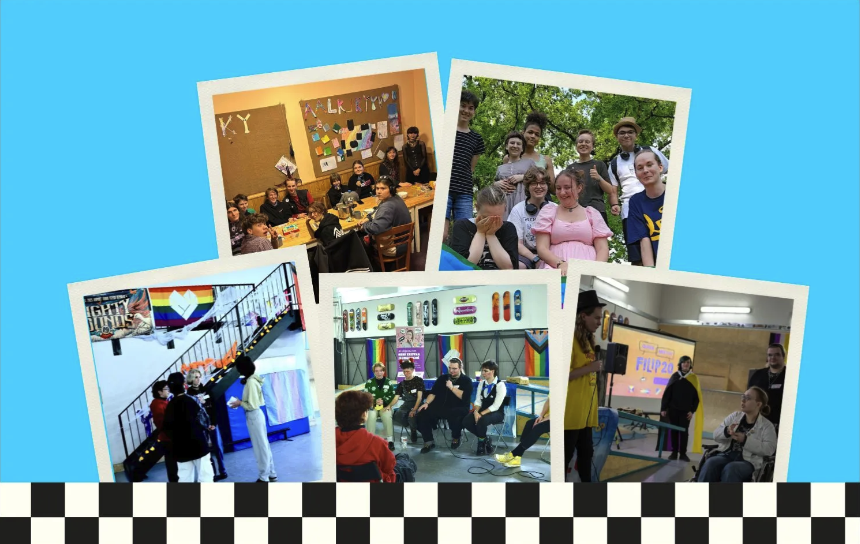
Accessibility & Allyship: Disability Justice by Trans*Parent and Queer & Trans Youth CZ, Czech Republic
With their IGLYO Grant, our Czech Member Trans*parent/Queer & Trans Youth (TP/QTY) CZ set out to create accessible and intersectional community spaces for those within our movement. The project core aim was to make the organisation more accessible to queer youth with a variety of additional needs: queer autistic or neurodivergent youth, deaf/hard of hearing, blind/visually impaired and those with mobility restrictions such as wheelchair users. The funding was used to map the community’s needs and take actions which would make a real impact on the accessibility of their events.
The secondary aim was to build an intersectional understanding of social movements, and the connections between anti-LGBTQI+ hate, ablesim and racism. This part of the project sought to find avenues to uplift the voices of minority ethnic communities and take concrete steps to prevent racism and micro-aggressions within community spaces.
Finally the project explored ways to understand how the organisation’s social media communication could reinforce intersectional values to TP/QTY’s community and social media followers. The concrete objective was to ensure that the organisation's social media content expresses solidarity and inclusion.
The project began with a needs mapping process speaking with people in the local community with lived experience of a wide variety of disabilities to develop content for the accessibility guidelines for event coordinators and organisations. The TP/QTY team also researched international examples of guidelines on accessibility finding best practices and integrating them into the accessibility guidelines.
The results from the needs mapping and research were used to develop a first draft of the Accessibility Guidelines. The draft was developed by a core team of disabled and Black and POC activists within TP/QTY. This was then presented to members of the TP/QTY community who organise events for review and feedback.
Six pilot events to test the new guidelines were held in Prague, Brno and online. Each event invited those with additional needs to contact the event coordinator in case any particular support was needed. Informal feedback was collected at each event by those who had additional needs, and fed into the Guidelines document.
Three events were also held which aimed to introduce the topic of intersectionality to the community, open discussion on multiple forms of discrimination and how to be an effective ally. These events and the new guidelines are only the beginning of the process and each year TP/QTY will review their progress and continue to alter their approach as necessary to best serve their community.
Selected Projects 2023
In 2024, we awarded three grants of €10,000 each to three of our Member Organisations based in EU Member States for the implementation of projects on three streams: Working towards inclusive education systems, Empowering young LGBTQI communities, and Building stronger organisations. On top of financial assistance, IGLYO will also be providing technical support by working closely with the selected organisations in the implementation of their projects.
.webp)
- Protecting LGBTI youth by Repealing the Discriminatory Provision of the Lithuanian Law on the Protection of Minors by LGL by the Lithuanian Gay League (Lithuania)
- Supporting Hungarian LGBT+ Youth and their Allies by Szimpozion Association (Hungary)
- Synchronised Voices: Cultivating Friendlier Communications by Zavod Transakcija (Slovenia)
Read on below to learn more about each of the selected projects' stories!
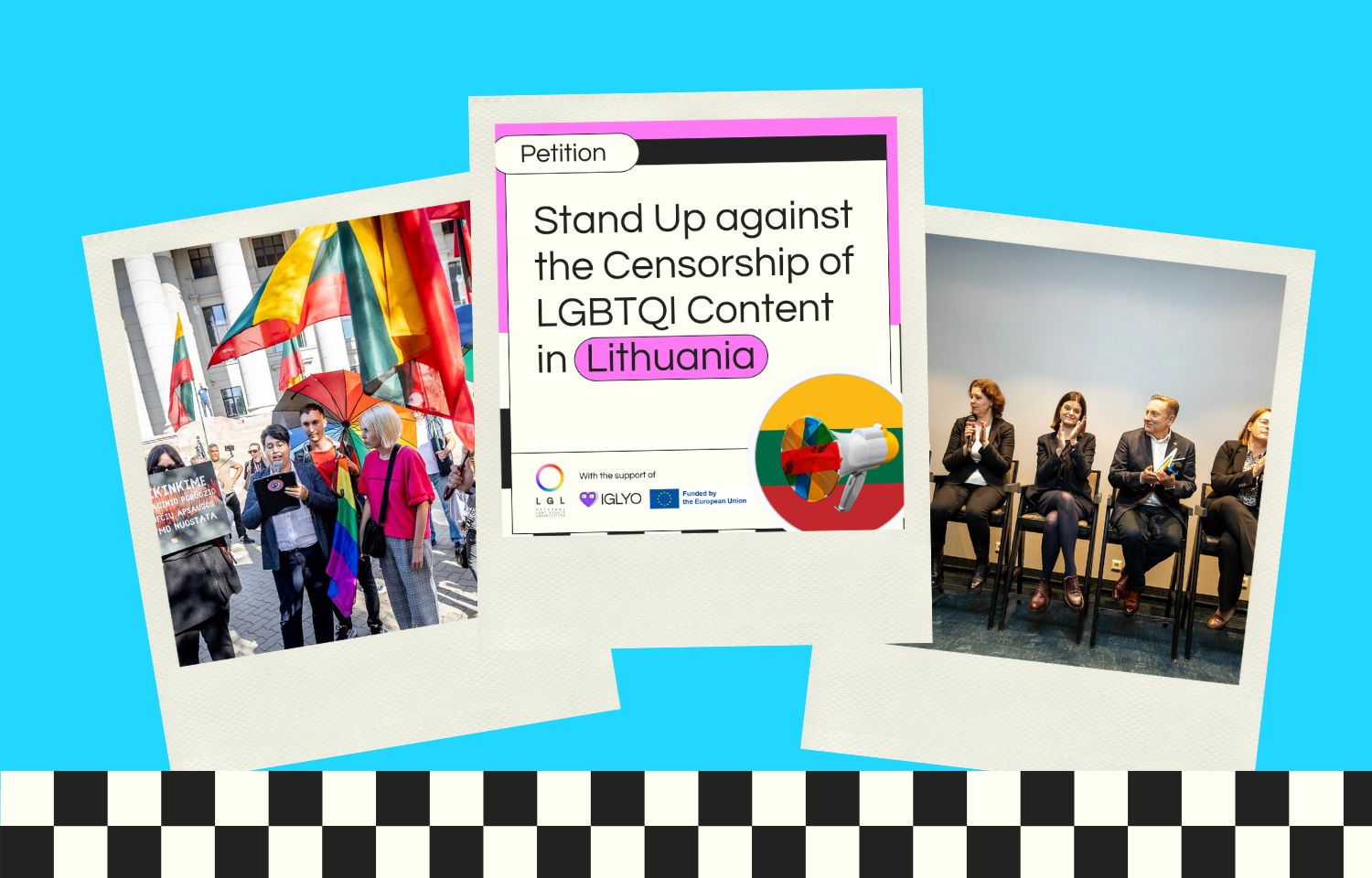
Protecting LGBTI youth by Repealing the Discriminatory Provision of the Lithuanian Law on the Protection of Minors by LGL by the Lithuanian Gay League (Lithuania)
Through their project, our Member the Lithuanian Gay League (LGL) took advantage of their strong research and awareness-raising background to engage in national and international advocacy efforts to make the Lithuanian Government aware of the direct negative impacts of the Lithuanian “Law on the Protection of Minors against the Detrimental Effect of Public Information” on the LGBTQI students in Lithuania.
With the support of IGLYO, LGL sent letters to national and international institutions to make policy-makers aware of the negative effects of the article 4(2)(16). They also built pressure by collecting petition signatures, as well as by organising a protest, an advocacy roundtable, and a discussion involving policy-makers during an international conference in Vilnius.
Highlights of the project included:
- A petition to stand up against LGBTQI content censorship in Lithuania, which gathering over 16,000 signatures — significantly surpassing the 1,470 signatures collected before the project's implementation.
- On the 28th of September date, LGL practiced their right of peaceful assembly by protesting the provision of the Lithuanian Law on the Protection of Minors against the Detrimental Effect of Public Information as well as to highlight the need for inclusive education. Our IGLYO Board Member, João, joined LGL for this important demonstration.
- An international conference where they discussed the need to abolish the discriminatory provision of the Law on the Protection of Minors against the Detrimental Effect of Public Information.
IGLYO feels inspired by their relentless work and efforts to stand up against the censorship of LGBTQI content in Lithuania and are proud to keep on working together towards the freedom of our communities in Lithuania and beyond.
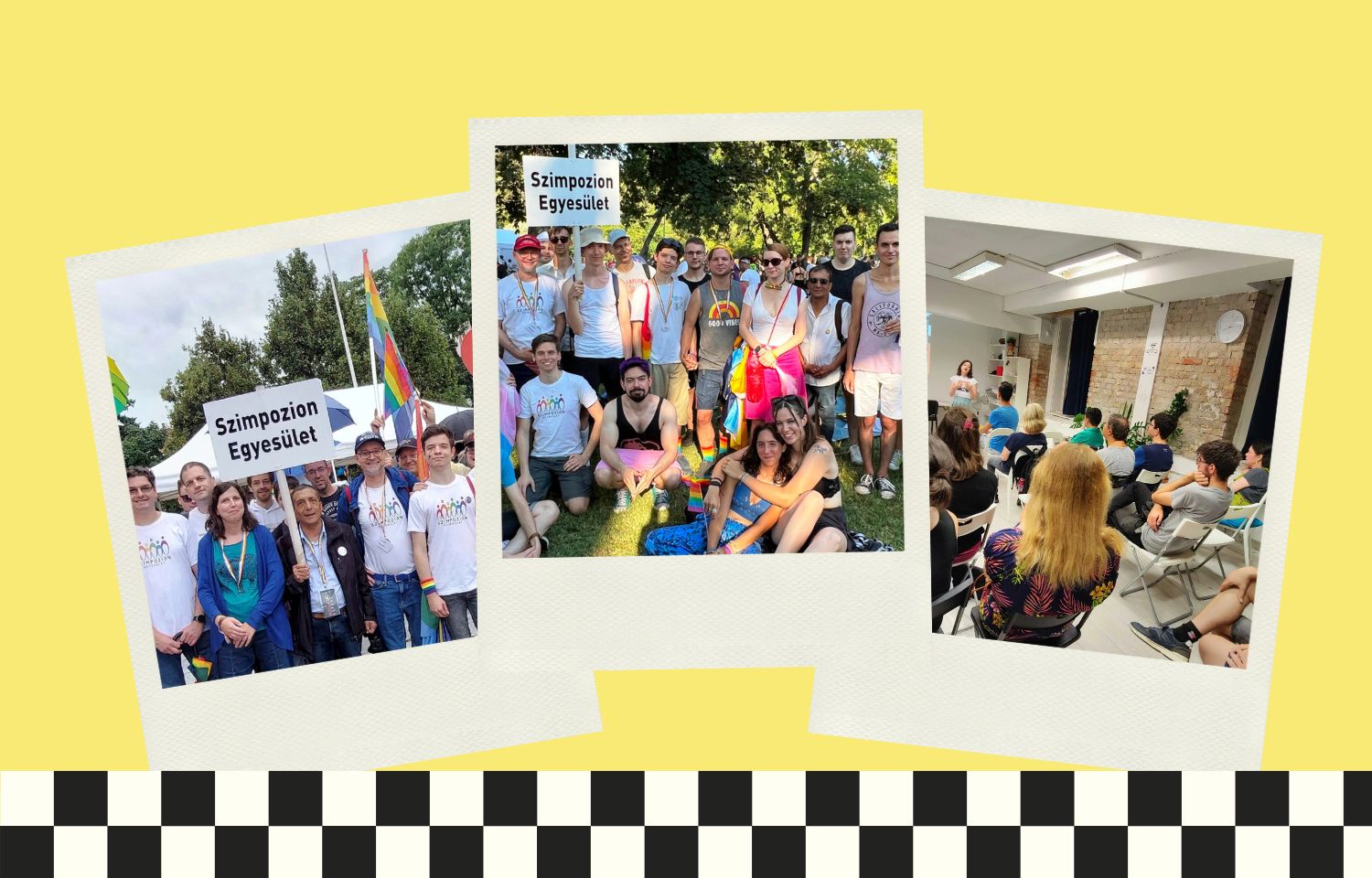
Supporting Hungarian LGBT+ Youth and their Allies by Szimpozion Association (Hungary)
Our Member Szimpozion Association dedicated their IGLYO Grants 2023 project to supporting LGBTQI young people in Hungary by contrasting the current anti-LGBTQI climate in the country.
To this end, they offered training and capacity-building opportunities to new volunteers, and spread information and awareness among the broader public. More specifically, Szimpozion's project achieved the following activities:
- Facilitating a training programme for future facilitators of their awareness-raising and sensitisation workshops, aspiring to reach out to a broad audience of young people over 18.
- Organising an internal training and team retreat for new volunteers and members who joined the association in 2022 and 2023;
- Building community spaces for LGBTQIA+ people over 18 to create a safe space, develop a platform to interact, and find and support resilience in the hostile anti-LGBTQIA+ climate of Hungary;
- Running an online video campaign to support and promote their activities, where three videos to promote the aims and mission of their organisation to their various audiences in Hungary (available here, here and here).
With this project, they managed to offer a wide array of training and capacity-building opportunities to new volunteers and local LGBTQI young people above 18 years old, while spreading information about their work and raising awareness among the broader public on a national scale, thus reinforcing their establishment as a reference organisation for LGBTQI young people in Hungary.
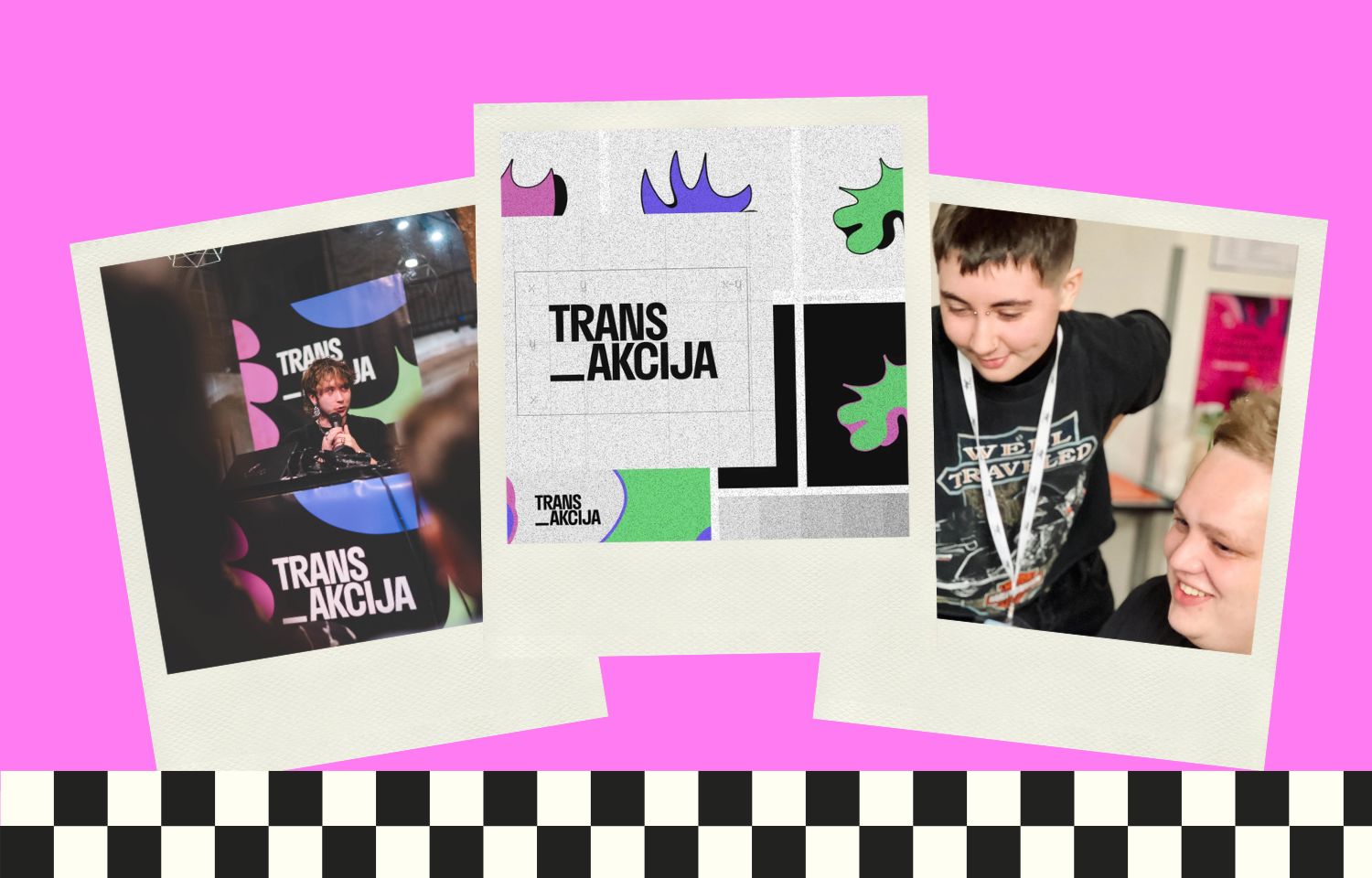
Synchronised Voices: Cultivating Friendlier Communications by Zavod Transakcija (Slovenia)
Our Slovenian Member TransAkcija dedicated their IGLYO Grants 2023 project to creating a new visual identity and communication strategy for their organisation.
They approached the redesign process as a community project where they involved their team of staff, volunteers and expert collaborators from the trans community in the process.
From June 2023 onwards, TransAkcija's staff, volunteers, and collaborators were busy plotting, squatting, and tinkering with colours, fonts, levels of fluffiness, drape, and (un)readability. About that process, TransAkcija said:
"IGLYO has made it possible for us to re-energise this summer through a powerful bonding experience: Creating a new visual identity together, as a whole team. At the moment when we needed a common denominator the most, they heard us — and provided room."
TransAkcija's new website and visual identity were launched on 30 October 2023 online. They also organised a public launch event on 2 November in a busy Ljubljana bar as part of the #TransFormacije festival.
Their new jazzy font called out slogans from a whole series of new stickers, their resident design guru Niko ditched Figma and grabbed a DJ mixer, and the venue served cocktails in the colours of their new visual identity.
IGLYO strongly believes that their outstanding and cutting-edge new visual identity and website will allow them to have even more impact for our communities in Slovenia and beyond.
